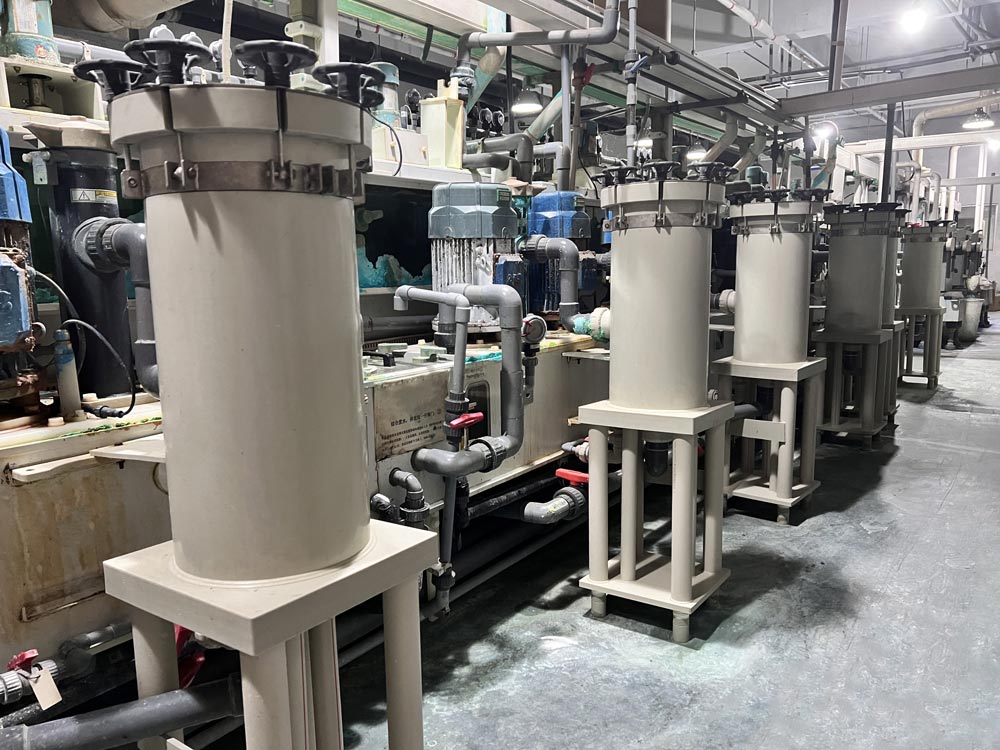
Electroplating Filter: Enhancing Efficiency and Quality in Metal Finishing Processes
# Electroplating Filter: Enhancing Efficiency and Quality in Metal Finishing Processes
## Introduction
Electroplating is a widely used process in various industries, from automotive to electronics, to enhance the surface properties of metal components. One critical component that ensures the success of electroplating is the electroplating filter. This article delves into the importance of electroplating filters, their types, and how they contribute to improving efficiency and quality in metal finishing processes.
## What is an Electroplating Filter?
An electroplating filter is a device designed to remove impurities and contaminants from the plating solution. These impurities can include particulate matter, oils, and other foreign substances that can adversely affect the quality of the electroplated finish. By maintaining a clean and consistent plating solution, electroplating filters help ensure that the final product meets the desired specifications.
## Types of Electroplating Filters
There are several types of electroplating filters available, each suited for different applications and requirements:
### 1. Cartridge Filters
Cartridge filters are one of the most common types used in electroplating. They consist of a replaceable filter cartridge that traps contaminants as the plating solution passes through. These filters are known for their ease of use and maintenance.
### 2. Bag Filters
Bag filters use a fabric bag to capture impurities. They are typically used for larger particles and are often employed in pre-filtration stages before the solution passes through finer filters like cartridge filters.
### 3. Depth Filters
Depth filters are designed to trap contaminants throughout the entire depth of the filter media, rather than just on the surface. This makes them highly effective for removing a wide range of particle sizes.
### 4. Membrane Filters
Membrane filters use a thin, semi-permeable membrane to separate particles from the plating solution. They are highly effective for removing very fine particles and are often used in applications requiring high-purity solutions.
## Benefits of Using Electroplating Filters
### 1. Improved Plating Quality
By removing impurities, electroplating filters help achieve a more uniform and defect-free plating finish. This is crucial for applications where surface quality is paramount, such as in the electronics and aerospace industries.
### 2. Extended Bath Life
Contaminants can degrade the plating solution over time, leading to more frequent bath changes. Electroplating filters help extend the life of the plating bath by keeping it clean, thereby reducing operational costs.
### 3. Enhanced Process Efficiency
A clean plating solution ensures consistent plating results, reducing the need for rework and improving overall process efficiency. This leads to higher productivity and lower production costs.
### 4. Environmental Benefits
By maintaining a clean plating solution, electroplating filters help reduce waste and the need for hazardous chemical disposal. This contributes to more environmentally friendly manufacturing processes.
## Conclusion
Electroplating filters play a vital role in ensuring the efficiency and quality of metal finishing processes. By removing impurities and maintaining a clean plating solution, these filters help achieve superior plating results, extend bath life, and enhance overall process efficiency. Whether you are in the automotive, electronics, or aerospace industry, investing in high-quality electroplating filters is essential for achieving the best possible outcomes in your metal finishing operations.
Keyword: electroplating filter